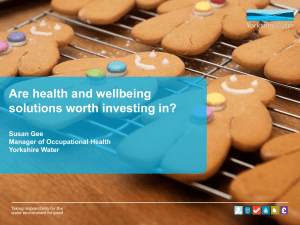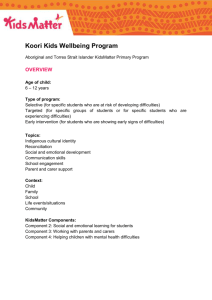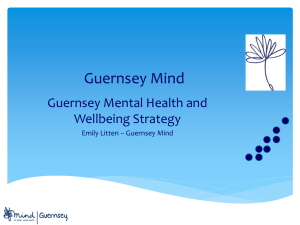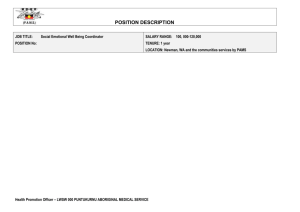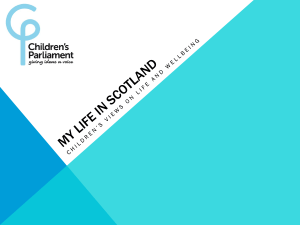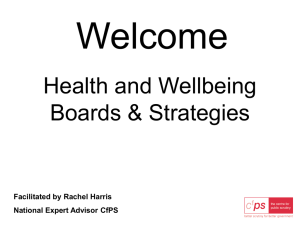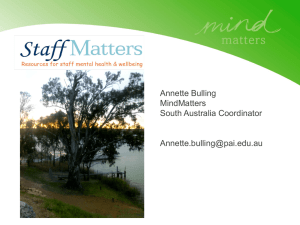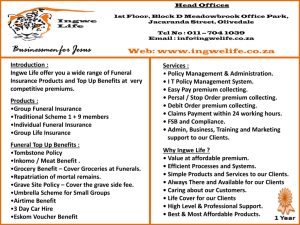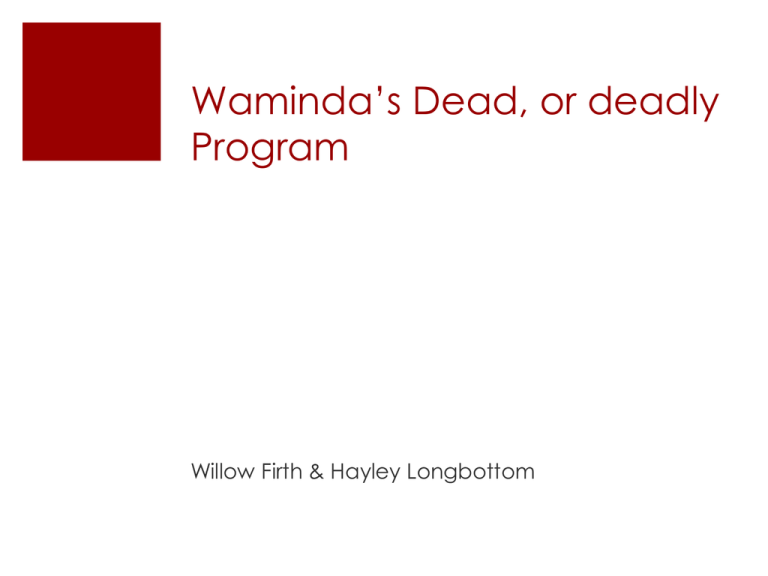
Waminda’s Dead, or deadly
Program
Willow Firth & Hayley Longbottom
Holistic View of Life and
Health
Cultural, spiritual, social, emotional = INTEGRAL to
the health of Indigenous people and therefore
Waminda
Colonisation disrupted cultural beliefs – adversely
affected the social and emotional wellbeing
Mainstream services did not fit this protocol and lack
cultural sensitivities
Waminda = High retention
Rates/
Happy, Supported staff
Now employs 46women – 40
Koori = 87% Aboriginal
workforce
Staff workshop days –
97% staff retention rate
Financial workshops- being in control
Challenging notions of what
Koori women can/can’t do
Paying above award wages
Access/opportunity
cultural appropriateness
Work is a positive place! Big
part of life
Time management
paying bills/working towards buying own
home
Self-care/wellbeing
New way of thinking
Can work and support
family in flexible happy work
environment
Staff Training and
Professional Development
Policy
Encourage staff to expand their knowledge and
skills
Flexibility of working hours to participate in
accredited courses
“Supported employment model”
Easy engagement/easy access
Training from the word go (not to wait 12 months)
First resume/ first interview – understanding
Soft entry into the workforce
Funeral Leave & Funeral Aid
Workers are required to
attend funerals in the
community out of respect
Funeral leave is above
award entitlement
Sorry business
Times of grief and loss –
extra support given
Funeral Pamphlet
Financial Assistance ($200)
Bus Hire
Equipment Hire (marquee,
chairs, tables etc)
Compulsory Clinical Supervision
& Grievance Policy
Living and working in the community is hard –
We must debrief/offload
Working environment must be supportive,
Operational and friendly
Above award entitlement
Family Leave Policy
Family orientated service
Five family leave days per
year (on top of all other
leave)
Women are the backbone
to Aboriginal Communities
Waminda’s Staff
Wellbeing Policy
Role models
Practice what we preach
Staff Wellbeing
Policy
Waminda’s visionary CEO and
Board of Management
Access to exercise shed –
including 2 half hour sessions
within work hours with qualified
fitness instructor
Physical Health Assessments
Nutritional/diet advice
Smoking Cessation Support
Physical Activity/exercise
“Health is Wealth,
Movement is Medicine”
We have GP/clinic/nurse, but we work within a social model of
health
Health delivery – centered around holistic approach
Drawing on principals of orthodox medicine but incorporating
into a holistic approach
Lifestyle change
Being overweight with chronic illnesses doesn’t have to be the
norm
Waminda & SOLA:
Sustainable Living
Garden Project
Provide people with
disabilities with meaningful
employment
For Koori women being
released from prison as
condition of their release
To enter into
training/employment with
improved health
The women will be engaged
and productive members of
the community
Build self-esteem/confidence
Reduce isolation
Bridge cultural/social divide
Teaching women basic
carpentary skills gives the
women self-confidence
and independance
Garden Project
Garden Project
“To build a workforce,
you need to build
people”
Create, happy,
healthy women
Employment doesn’t
happen overnight
“Being able to maintain a
successful Aboriginal workforce
strategy is all about believing in
people. Give someone an
opportunity, listen to them,
value them, offer the right
training at the right time, and
they blossom and grow and
become the best person they
can be” Faye Worner .CEO
My Wellbeing Story
“DEAD, OR DEADLY ?!”
OUR PROGRAM
Questions and challenges chronic disease &
learned behaviours in our community
We have a choice – staff and community:
We can be DEAD, OR DEADLY …
Enjoy this little snapshot of our program. It also
interviews a few clients who have turned their life
around and started working.



